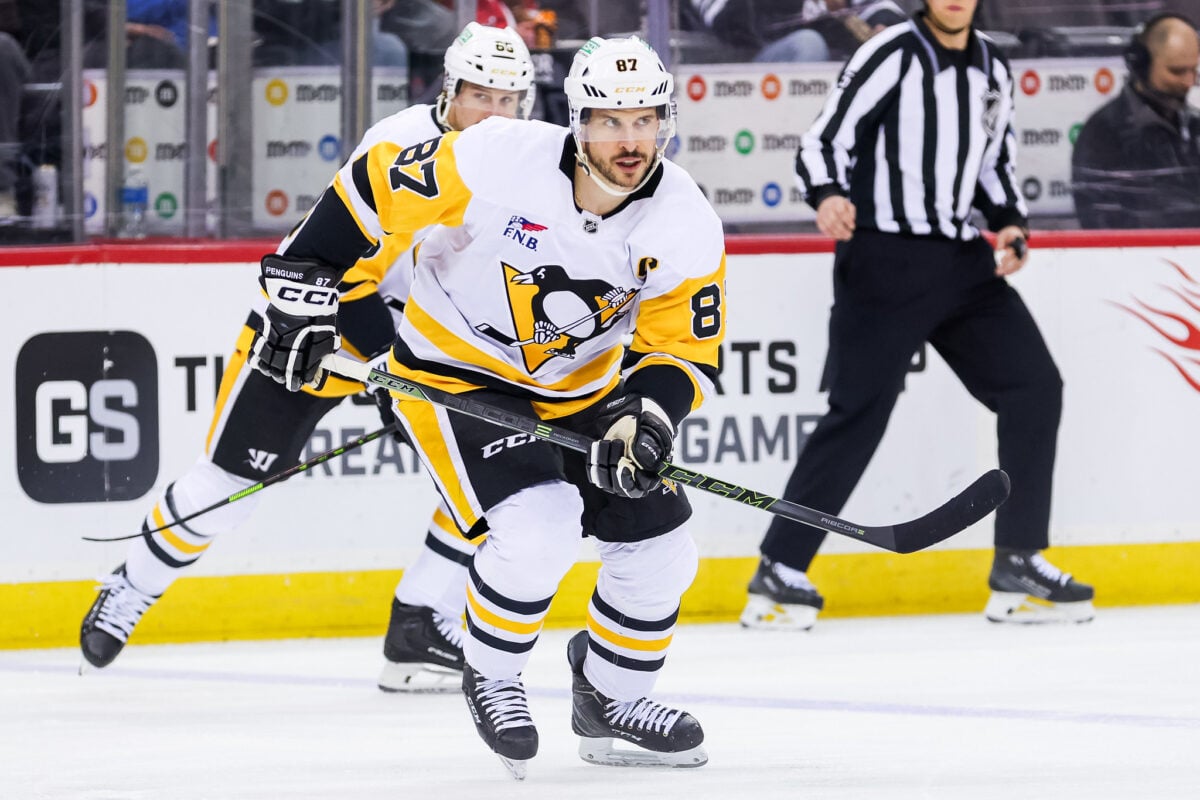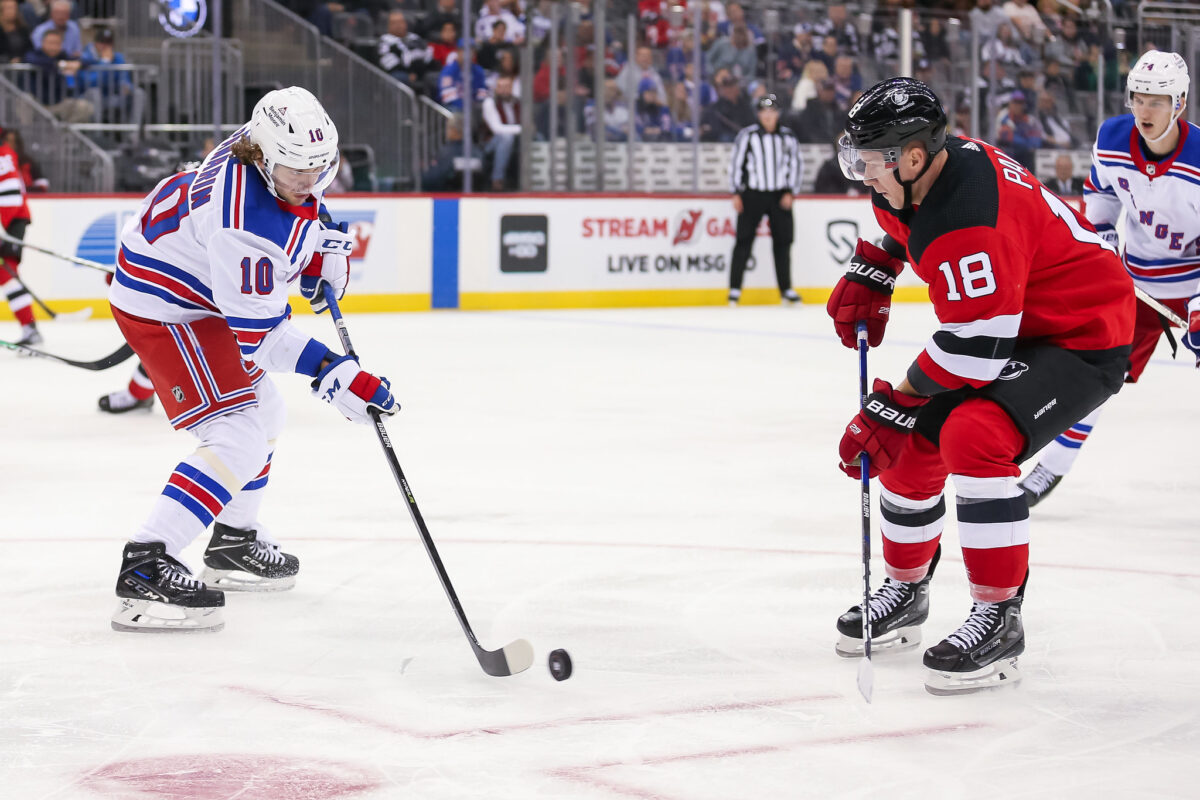The last time a team from the Metropolitan Division won the Stanley Cup title or even won the Eastern Conference was in 2018. That was when the Washington Capitals had their run to win it all. It’s been seven seasons since the division has reached the Final, the longest drought of any division in the NHL.
Heading into the 2025-26 season, the drought might continue. The expectation is that a team from the Atlantic Division will win the Eastern Conference and the Cup, whether it’s a three-peat from the Florida Panthers, the Toronto Maple Leafs finally getting over the hump, or the Montreal Canadiens or Ottawa Senators making a big leap this season. The Carolina Hurricanes have a good chance to reach the Stanley Cup Final, especially after a strong offseason, but their woes in the Eastern Conference Final (going back to the 2019 sweep against the Boston Bruins) linger. The Washington Capitals took big strides last season, but it’s unknown if they are simply a good regular season team or a team built for a playoff run (last season indicated the latter might be accurate). The Metropolitan Division has a lot of good teams, but teams that are unlikely to win it all, especially if they must face the Panthers, who have proven they have what it takes to make a deep playoff run.
Related: Rangers’ Offseason Remains Incomplete Despite Addressing Big Need With Gavrikov Signing
How did things end up this way? How did the Eastern Conference become lopsided between the two divisions, most notably, at the top? There’s no definitive answer, and a lot of factors made the Metropolitan Division irrelevant in the big picture. The hope is that a division with a few teams that have great history and a history of winning is back in that conversation.
The Teams Tried Keeping a Non-Existent Window Open
The New York Islanders and Pittsburgh Penguins are the two teams that tried to remain competitive when their rosters suggested otherwise. They were the two teams in the past five seasons that slowly declined while the front offices tried to keep the contention window open.
The Penguins were a model franchise in the NHL, and it wasn’t long ago that they were the team to beat, winning the Stanley Cup in 2016 and 2017. They did it with a core of Sidney Crosby, Evgeni Malkin, Kris Letang, and rising star Jake Guentzel. The problem, aside from losing Marc-Andre Fleury in the 2017 Expansion Draft, is that they plateaued after that.
After multiple playoff exits in the first round, they kept the core together despite its slow decline. Then, after missing the playoffs in 2022-23, a sign that the Penguins probably needed to rebuild, they doubled down, trading for Erik Karlsson, who, like Letang, was a defenseman well past his prime. The move backfired as the Penguins are now one of the worst teams in the NHL and are finally starting to rebuild.

The Islanders were on the doorstep of the Cup in the early 2020s, pushing the Tampa Bay Lightning to six games in the 2020 Eastern Conference Final and then pushing them in a seven-game series in the 2021 Semifinal. After the 2021 run, that team needed a reset.
Instead, general manager (GM) Lou Lamoriello kept the group together and did so again, again, and again. Lamoriello could have moved on from some of the veterans and chosen to replace coaches instead, citing Barry Trotz and Lane Lambert as the problems. The result was a slow decline, and the 2024-25 season was when everything fell apart, resulting in a change at GM.
There’s a good argument that the Philadelphia Flyers fell into this trap as well. They were one of the best teams in the NHL in the 2019-20 season, but started to decline after that. The Flyers needed a rebuild, and instead, they tried retooling on the fly. The John Tortorella hiring reflects the disconnect the front office at the time has from reality. Their struggles gave the division three teams that were going nowhere and far from Cup contention.
Failed Rebuilds
It’s hard to call the New Jersey Devils rebuild a failure or the New York Rangers, who reached the Eastern Conference Final in 2022 and 2024, a disappointment. Both teams were bottom feeders in the late 2010s and became good teams. That’s what they became, good teams, not great teams, and not Cup contenders.
The Devils drafted well. With the top pick in the 2017, 2019, and 2022 Drafts, they managed to select Jack Hughes and Nico Hischier, two elite talents to build the forward unit around. With Jesper Bratt developing into a dynamic winger, the Devils suddenly had a great offense that could run up the score against anyone, and it did in 2022-23. Those players are great in the regular season but not in the playoffs, when space is hard to find and physical play is crucial. It also didn’t help that once the team knew they were contenders, the next steps were missteps (like the Tyler Toffoli trade), and their star players, while exciting, are injury-prone, leaving them depleted of talent come playoff time.
The Rangers had the second pick in the 2019 Draft and the top pick the next year, ideal for a team starting a rebuild. Usually, teams hope to find a generational talent or at least a star player at the top of the draft. The Rangers landed one NHL regular (Alexis Lafreniere) while trading away the other after finally running out of patience (Kaapo Kakko).
It also didn’t help the cause when the Rangers rushed their rebuild when Artemi Panarin fell into their lap. After signing the winger, the contention window was suddenly closer than expected, and after reaching the Eastern Conference Final in 2022, there was no going back. It’s why they signed Vincent Trocheck in the 2022 offseason and acquired Patrick Kane at the 2023 Trade Deadline, knowing they were close to the Cup and needed to buy in. They were close, but ultimately, the push messed with their timelines, and when the Rangers started to age, as they did this past season, they looked like a team with no path to contention. Fast forward, and even with a great core led by Panarin, Adam Fox, and Igor Shesterkin, they are still far from the Cup.

Then there was the Columbus Blue Jackets and their history of failed rebuilds. They went from being a good team that couldn’t win in the playoffs to a punchline because of years of mismanagement. They deserve credit for hitting the reset button after the 2018-19 season, as they focused on drafting and developing but their next steps left them at the bottom of the division for the next six seasons. The good news is that under GM Don Waddell, they are starting to turn a corner and look like a borderline playoff team. That said, it will be a while before they are Cup contenders.
The Rise of Florida
There are two ways to look at how the past seven seasons played out. Yes, the Metropolitan Division isn’t good and hasn’t produced a Cup-caliber team in almost a decade. At the same time, two modern dynasties came out of the other division and the state of Florida, of all places (an oddity considering how the state was a non-factor in the hockey world for decades).
The Lightning were a model franchise in the previous decade, but finally put it all together in the 2019-20 season. Ironically, it took a historic season followed by a sweep against the Blue Jackets in 2019 for them to realize that the regular season, while important, isn’t crucial for a Cup run. That’s how they won it all in 2020 and 2021, by playing at one level during the season and another in the playoffs.
The Panthers, meanwhile, were the sleeping giants in the NHL. They finally figured out how to make South Beach a destination and a desirable place to play, and once they put together a great team, they would be tough to stop. Now, they are the team that looks unbeatable and one that can not only keep elite talent but attract it as well. The Hurricanes are the team with the most unfortunate timing since they finally put all the pieces together to become a contender just as the Panthers became a juggernaut.
Failing to Seal the Deal
Once a team is great, it must put together the finishing touches to get over the hump. The Rangers and Hurricanes went from good to great over the past five seasons, but never rounded out their rosters to beat the Lightning or the Panthers. For the Rangers, it was their bottom six, which was always overwhelmed in the Eastern Conference Final, and the Hurricanes needed that difference-maker in the top six who could do it all, but never found one.
The Capitals are another team that’s starting to land in this category as well. They oddly were the team that retooled overnight with the help of a great farm system, multiple high-value offseason additions, and a great head coach. They have a team capable of making the playoffs, not a playoff run. That will only happen if they add the right finishing touches. In the Capitals’ case, it’s a physical presence outside of Tom Wilson and scoring in general, two things that aren’t easy to find but are needed to get this team back in the Cup conversation.
When Will the Division Be Dominant Again?
There are some teams on the rise. So, the 2025-26 season might be the one where the drought ends. The question is which team ends up winning the Cup, or at the very least, the Eastern Conference?
Next season’s best bets are the Capitals, Hurricanes, and Devils. They made the playoffs last season, but all three teams have the foundation in place to be a contender but need the finishing touches. The Hurricanes acquired K’Andre Miller and Nikolaj Ehlers this offseason, while the Devils added Connor Brown and Evgenii Dadonov with hopes that they make the difference this season.
In the long run, the team to win the Cup might be the Blue Jackets, Flyers, or Islanders. All three teams are putting together promising rosters for the future and might be contenders soon enough. And if any of these teams (or the Penguins) win the draft lottery, maybe that also accelerates the timeline.
Which team in the Metropolitan Division do you think will end the drought? Let us know in the comments section below!
